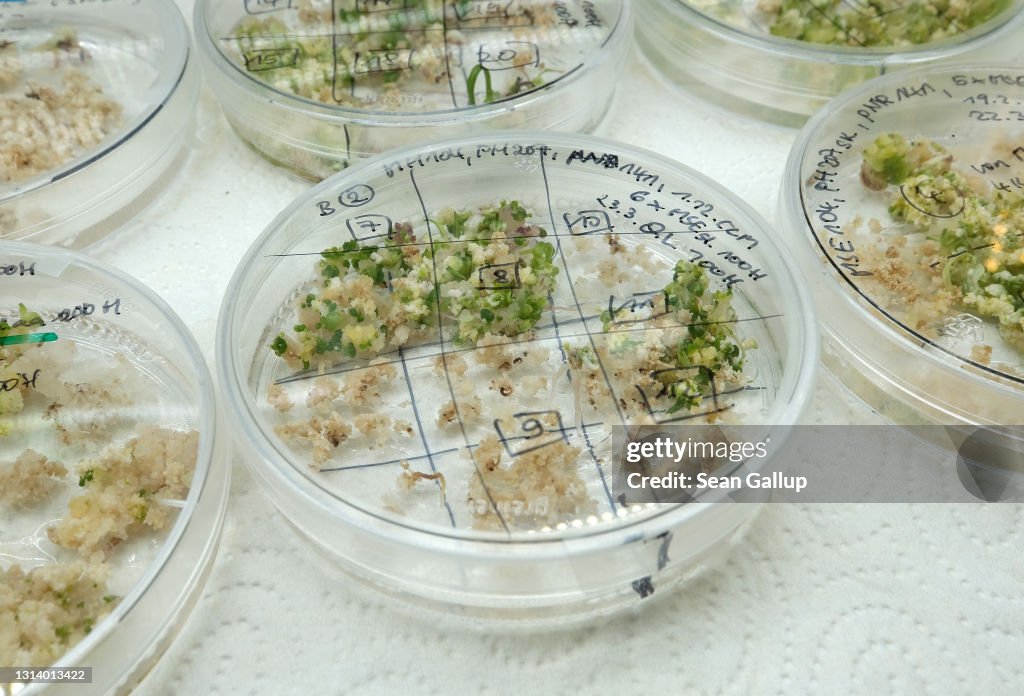IPK Confronts Climate Change With Biodiversity In Agriculture
GATERSLEBEN, GERMANY - APRIL 22: Petri dishes containing sprouting embryos of an agricultural plant called camelina sativa that have received spliced genetic material derived through the CRISPR-Cas9 editing process lie on shelves in an incubation room at the Leibnitz Institute of Plant Genetics and Crop Plant Research (IPK) on April 22, 2021 in Gatersleben, Germany. The IPK conserves approximately 150,000 live samples of nearly 3,000 species of crop plants and wild relatives. Through genetic sequencing the institute uses the samples as a resource for breeding biodiverse hybrids suited to modeled environmental scenarios of the future. The IPK also includes a hall that enables scientists to grow plants under precise environmental conditions, such as intensity and color temperature of light as well as temperature, humidity, CO2 content, air flow and other characteristics. Germany has seen consecutive years of drought that scientists expect to continue as a consequence of global warming, creating the need for crop plants better suited to thrive and provide high yields in dryer conditions. The IPK’s seed bank of crop plants is the largest in the European Union. (Photo by Sean Gallup/Getty Images)

PURCHASE A LICENSE
How can I use this image?
$575.00
CAD
DETAILS
Restrictions:
Contact your local office for all commercial or promotional uses.
Credit:
Editorial #:
1314013422
Collection:
Getty Images News
Date created:
April 22, 2021
Upload date:
License type:
Release info:
Not released. More information
Source:
Getty Images Europe
Object name:
sg023739_2021042380914432
Max file size:
5915 x 4021 px (19.72 x 13.40 in) - 300 dpi - 7 MB